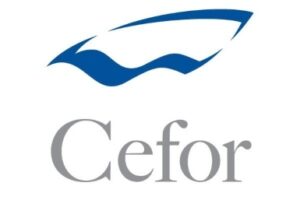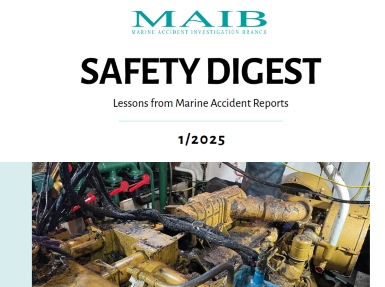 The US National Transportation Safety Board (NTSB) has recommended that land-based firefighters be better prepared for marine vessel firefighting following a fatal fire on the Con-Ro vessel Grande Costa D’Avorio in Newark, New Jersey, on 5 July 2023. The ship was docked at Port Newark when a vehicle used by shoreside workers to push used vehicles onto the vessel caught fire on an interior garage deck.
The US National Transportation Safety Board (NTSB) has recommended that land-based firefighters be better prepared for marine vessel firefighting following a fatal fire on the Con-Ro vessel Grande Costa D’Avorio in Newark, New Jersey, on 5 July 2023. The ship was docked at Port Newark when a vehicle used by shoreside workers to push used vehicles onto the vessel caught fire on an interior garage deck.
The ship’s captain ordered use of the vessel’s CO2 extinguishing system, Continue reading “NTSB recommends improving preparedness of land-based firefighters to vessel fires”
 The “E-cars on Board – A Safe Passage”
The “E-cars on Board – A Safe Passage” 
 The Nordic Association of Marine Insurers (Cefor) has released its 2024 hull trends from the Nordic Marine Insurance Statistics (
The Nordic Association of Marine Insurers (Cefor) has released its 2024 hull trends from the Nordic Marine Insurance Statistics ( The UK Marine Accident Investigation Branch (
The UK Marine Accident Investigation Branch (
 The UK Marine Accident Investigation Branch (
The UK Marine Accident Investigation Branch (
 IACS, the membership organisation for the world’s leading classification societies, has published its 2024 Annual Review, which highlights the central role played by IACS in supporting safety standards in global shipping.
IACS, the membership organisation for the world’s leading classification societies, has published its 2024 Annual Review, which highlights the central role played by IACS in supporting safety standards in global shipping. BMP Maritime Security has been published by a series of industry Associations, including BIMCO, ICS, IMCA, INTERCARGO, INTERTANKO & OCIMF supported by over forty maritime stakeholders. It is a consolidated and enhanced publication Best Management Practices (BMP) for Maritime Security (MS).
BMP Maritime Security has been published by a series of industry Associations, including BIMCO, ICS, IMCA, INTERCARGO, INTERTANKO & OCIMF supported by over forty maritime stakeholders. It is a consolidated and enhanced publication Best Management Practices (BMP) for Maritime Security (MS). New global team of 150 experts will help the sector navigate decarbonisation and digitalisation challenges. During Singapore Maritime Week, Lloyd’s Register (LR) unveiled its newly structured LR maritime advisory services, designed to help address escalating regulatory demands, rising decarbonisation costs, and the increasing influence of digitalisation.
New global team of 150 experts will help the sector navigate decarbonisation and digitalisation challenges. During Singapore Maritime Week, Lloyd’s Register (LR) unveiled its newly structured LR maritime advisory services, designed to help address escalating regulatory demands, rising decarbonisation costs, and the increasing influence of digitalisation.